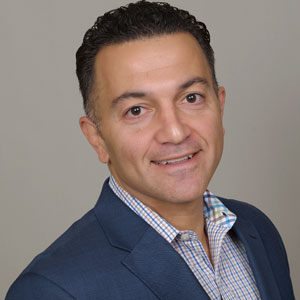By Clode Moradi, MSPFP, CFP®

“The HSA is one of my favorite ways for young families to save money and pay for medical services using pre-tax funds.”
An HSA account is a Tax Advantaged Health Savings Account that is available to many Americans. The HSA is one of my favorite ways for young families to save money and pay for medical services using pre-tax funds. For families that spend a lot of money on medical services, this can be a powerful way to save for healthcare costs and may result in thousands of dollars in tax deductions, as a result of using pretax money to pay for certain services. These vehicles can also serve as a nice supplement to your 401k, 403B, IRA, or other retirement vehicles. With the rising cost of healthcare and the future expenses that one can expect in retirement, using an HSA may be worth looking at. With three kids and an active lifestyle, I personally have an HSA account setup and put it to use. Here are some interesting features of HSA’s. Please keep in mind that you need to double check to make sure that the service(s) you use are covered. This article is for informational purposes only.
There is a long list of services, drugs (over the counter and Rx), and medical equipment/aids that are covered. The main criteria are for there to be a real medical need for the service(s) or product(s) that you pay for.
Here’s a short list of interesting services that may qualify to be paid for from your pretax HSA Account*.
- Gym membership, if it is prescribed by your doctor to treat or prevent certain diseases.
- Psychologist and Psychiatrist visits
- Braces, as long as your dentist says it is necessary to alleviate or prevent disease.
- Acupuncture, Chiropractic Care, Physical Therapy
- Massage for diagnosed medical conditions
- No Rx needed: Sunscreen, motion sickness meds, athletic braces, bandages, male over the counter contraceptives, Artificial reproduction as long as it is necessary, AA meeting related costs, Breast milk storage bottles and pumps, Private Hospital Room,
- Rx needed: Allergy medicines, Support Pillow, and a high percentage of other Rx’s.
- Premiums for COBRA after separating from your employer (regular health insurance premiums do not qualify).
- Prescription glasses and Optometric care
- Lasik
- Lap band
- Long term care costs
- Fertility
So, who qualifies for an HSA account in 2018 and what are some details as to how they work?
Who Qualifies for and HSA in 2019
To be eligible you have to have a “high deductible” health plan. What that means is your health insurance has to have a deductible of $1,350 per individual or $2,700 for the entire family. Also, your out of pocket maximums has to be at most $6,750 per individual or $13,500 for the whole family. Be careful with when you establish your high deductible plan because this may affect your contribution limits for that year. Excess contributions can result in a penalty. It’s especially important to be extra careful in the first year you establish your high deductible health plan.
Contribution limits– $3,500 if your health coverage is individual or $7,000 if you have a family plan. (if you are 55 or older, you can contribute and extra $1,000 as a catch-up contribution).
Tax Benefits:
The amount of money you put into your HSA is pretax. You can view this as money that is tax deductible in the year it is contributed before the deadline. The deadlines are the same as your income tax deadline (without extensions). Keep in mind, the money is pretax for federal tax purposes. Check with your state to see if the money is subject to state tax. FICA is another issue and depends on other factors (I won’t get into it here).
If the money in your HSA is used for qualified expenses, that money is tax free as well (this includes any investment gains). This is similar to a Roth IRA with the added benefit of being able to deduct your initial contribution.
If you have money in your HSA that has not been used for qualified medical expenses, the entire amount can rollover into the next year (FSA’s are very limited in this regard). Also, any excess money left in the account over the years can be used for your retirement after the age of 65. What this means is that after age 65, you can actually start withdrawing money from your HSA for any reason, without a penalty. The amounts you take out are taxable (similar to a Traditional IRA), however you would have still taken advantage of the initial pretax contribution a well as the deferral on any gains).
Other Benefits:
No RMD’s (required minimum distributions)
Contributions to an HSA don’t affect your contribution limits to a Traditional or Roth IRA.
As you can see there any many benefits to establishing an HSA account. There are some crucial details and you have to be careful to use your HSA correctly, to make sure you utilize the benefits without paying hefty penalties. If you do use them correctly, the benefits are fantastic and can potentially save you a lot of money. Make sure you work with a certified financial planner™ professional or your tax advisor. There are many other details that you need to consider before embarking on any financial decision. If you have any additional questions regarding the HSA, feel free to let me know and I can go over them.

Clode Moradi, MSPFP, CFP®
Clode is an independent Certified Financial Planner™ and has a Post-CFP® Masters Degree in Advanced Personal Financial Planning, from Kansas State University, one of the most prominent financial planning universities in the nation. He graduated at the top of his class with a 4.0 GPA and was awarded a nomination and acceptance into the honorary society of Phi Kappa Phi to represent the importance of higher education in the Financial Planning industry.
Clode specializes in taxation, retirement, and investment planning as they relate to personal goals and quality of life. He also holds a Graduate Level Certification in Financial Therapy, and has written extensive research articles on financial topics such as goal based portfolio construction, how to define “financial success”, money psychology and its manifested human behaviors, and various other topics related to finance, taxation, and human behavior as they relate to one’s quality of life. Clode also has a Bachelor’s Degree in Personal Financial Planning, where he graduated Summa Cum Laude from Franklin University of Ohio. He is an active member of the Financial Planning Association and Financial Therapy Association.
Clode is the founder of Brilliant Financial Strategies, LLC. He started in the financial industry more than 20 years ago and created BFS as a platform to offer financial planning at a much deeper level. Clode feels that Financial Planning needs to break out and surpass the status quo. “Our job is to help clients make use of their financial potential to build a meaningful life”.
He enjoys spending quality time with his wonderful family. Clode’s hobbies include saltwater fishing and Brazilian Jiu-Jitsu. Clode is the creator of a group called Kool Kids Fish that introduces kids and their parents to the hobby of fishing, as a means of spending quality time together. Clode also coaches a kids Jiu-Jitsu Competition class at Gracie Barra La Canada-Flintridge, where he works with kids and teens that compete in Jiu-Jitsu tournaments nationally. One of his most valued personal accomplishments is receiving his brown belt in Brazilian Jiu-Jitsu from ADCC world champion Orlando Sanchez of Gracie Barra.
Clode’s approach to life, money, and financial planning is to create quality of life through balance and honest self-reflection. He believes that abundance can only have value when there is balance in one’s household, family, and internal being. He brings this approach to all aspects of life.
Disclaimers
This article is for reference and informational purposes only and does not provide tax, legal, or accounting advice. It is for guidance only and not a substitute for the user seeking personalized financial planning and professional advice. It is not intended to provide, and should not be relied on for, tax, legal or accounting advice. You should consult your own financial, tax, legal, and accounting advisors before engaging in any transaction.
These benefits are complicated, and this article is not intended to be tax advice. The IRS has exclusions and restrictions and qualifications. If you are considering offering these benefits to employees, be sure you check with a tax professional or your benefits advisor first.
*This is not an official list, but a possible list of certain services we have done research on. Please check with your HSA provider and accountant, to see if certain services qualify before assuming that they will qualify to be paid for through your HSA account. Also, see IRS Publication 502 for more details.
This website and information are provided for guidance and information purposes only. Investments involve risk and unless otherwise stated, are not guaranteed. Be sure to first consult with a qualified financial adviser and/or tax professional before implementing any strategy. This website and information are not intended to provide investment, tax, or legal advice.

